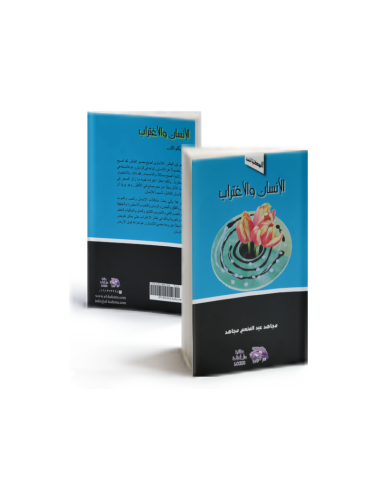Heideger - Pastor of Being
Existence led to alienation .. and man drowned in things .. he gasped after partial beings, and he forgot about existence.
- On sale!
0 kg - 150 kg
E£85.00 - E£92.00
Existence led to alienation .. and man drowned in things .. he gasped after partial beings, and he forgot about existence.
This book presents Paul Tillich at his very best--brief, clear, stimulating, provocative. Speaking with understanding and force, he makes a basic analysis of love, power, and justice, all concepts fundamental in the mutual relations of people, of social groups, and of humankind to God.
Philosophy, metaphysics, or ontology is nothing but a constant attempt by man to rationally adjust his life path so that he returns to walking on the bound path guiding in this the mind unity
Can we run from that which never misses?
Heraclitus asks
Homelessness has become the fate of the world .. Man has become separated from man
Realism diminishes reality, weakens it, and falsifies it. It does not take into account our main facts and our basic concerns such as love, death, and astonishment, it introduces the human being into an imperfect and alienated perspective, and ignores that reality exists in our dreams in our imagination.
Psychology of Aesthetics, Creativity, and the Arts is devoted to promoting scholarship on the psychology of the production and appreciation of the arts and all aspects of creative endeavor.
This book is the fruit of a love for Sartre that lasted more than twelve years, during which this French thinker lived within my breath; he was my sustenance and drink.
WHAT IS RELIGION ? by Paul Tillich, Translated by Mejahed Abdelmeaim mejahed, combines three works originally written in German, one of which was published in 1925. The two works in the final third of the book were presented to meetings of Kant-Gesellschaft in 1919 and 1922, and may now be found mainly in Gesammelte Werke volumes I and IX...
In today's unsure, and often unsafe, school environment, professionals need brief but thorough strategies to handle any classroom imbalance.
As a life raft for beginners and their supervisors, Where to Start and What to Ask provides all the necessary tools for garnering information from clients. Lukas also offers a framework for thinking about that information and formulating a thorough assessment. This indispensable book helps therapeutic neophytes organize their approach to the initial phase of treatment and navigate even rough clinical waters with competence and assurance.











